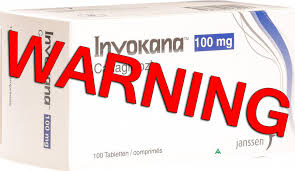Patients who used diabetes drug canagliflozin, more commonly known by the brand name Invokana, are pursuing claims against drug manufacturers because of several devastating adverse effects they experienced. The accusations include severe kidney damage, kidney failure, ketoacidosis, and a dramatic increase in leg and foot amputations.
If you took Invokana or another canagliflozin product and suffered any of these serious adverse effects, you may want to consider pursuing a claim against the drug manufacturer. You may be eligible to collect compensation to pay your related medical bills, cover lost wages and time away from work, and even money for pain and suffering. These side effects can be catastrophic, and you may have suffered more damages than you realize. Get help from an Invokana lawsuit lawyer today.
The legal team at Gacovino, Lake & Associates, P.C. is ready to take your call to discuss the complications you experienced while on Invokana. We can help you determine your eligibility to file a claim for compensation, and understand the value of the damages you suffered. Call us today at 631-600-0000 to learn more.
What Are the Serious Adverse Health Events Linked to Invokana Use?
Invokana and other canagliflozin products are a relatively new weapon to fight type 2 diabetes, although some doctors also prescribe it for patients with type 1. Usually prescribed in conjunction with a change in diet and lifestyle, this drug helps control blood glucose levels.
These drugs — sodium-glucose cotransporter 2 (SGLT2) inhibitors — work by blocking the absorption of glucose into the bloodstream and instead causing the kidneys to release it in the urine. However, it increases several risks already faced by patients with diabetes.
This includes a dangerous increase in acid in the blood known as ketoacidosis, increased risk of kidney failure, and an increase in the number of necessary leg and foot amputations. These complications can affect the patient’s life in many ways, even leading to permanent disability or death.
Diabetics who can control their blood sugar levels, do not develop peripheral neuropathy, and take care of their feet and legs are already at a slightly increased risk of requiring amputation. When taking a canagliflozin product, this risk seems to increase dramatically. This means people who could previously ambulate easily and had few serious health complications might now be unable to engage in their favorite activities or even face a permanent loss of mobility.
Has the U.S. Food and Drug Administration Taken Action Based on Complaints About This Drug?
The U.S. Food and Drug Administration (FDA) has received numerous reports from doctors and patients about adverse health events, with varying severity. Because the drug has only been on the market since 2013, there was little information about outcomes until the completion of two major clinical trials in early 2017.
Based on the results of these trials, as well as the reports of side effects and major complications, the FDA issued a statement in May 2017 that it would require the strongest warning it offers (Boxed Warning) on this class of diabetes medications. This boxed warning highlights the increased risk of amputations. It is now a requirement on all canagliflozin products, including Invokana, Invokamet, and Invokamet XR.
The studies show these drugs might double the risk of amputation over diabetics receiving a placebo. Most patients required toe or foot amputations, which do not affect quality of life as severely as more serious amputations. However, some patients did require leg amputations both below and above the knee. Some lost parts of both feet or legs because of complications while on Invokana.
While the FDA has not yet added boxed warnings about the other serious complications possibly associated with canagliflozin, it may occur at some point in the future. The agency relies on clinical trials and peer reviewed research to make these decisions, and researchers have not yet conducted large-scale studies on kidney failure, ketoacidosis, and other side effects.
What Is the Current Status of Invokana Lawsuits?
The manufacturers who produce and market these drugs did not issue any warnings about many of the serious side effects patients experienced. This is the primary complaint in most of the lawsuits filed against these pharmaceutical companies.
In December of 2016, the courts consolidated all federal cases against these drug manufacturers into multidistrict litigation (MDL). This allows the plaintiffs to go through the evidence collection and discovery process together, cutting costs and allowing them to build a stronger case. Then, the judge will choose several bellwether cases to serve as examples and test out each side’s argument in court. Depending on the outcome, the remaining cases will likely settle out of court or return to their original jurisdiction for trial.
The courts tasked U.S. District Judge Brian Martinotti from the District of New Jersey with overseeing the Invokana MDL. While pretrial proceedings are already underway, it is not too late to file litigation based on your experience with this drug. We can help you navigate this process, and determine your eligibility.
How Can I Discuss My Case with an Invokana Lawsuit Lawyer?
At Gacovino, Lake & Associates, P.C., our Invokana MDL attorneys can help you recover the compensation you deserve for your medical bills, pain and suffering, and loss of enjoyment of life, as well as other damages related to the medication. Even if you are not sure you have a case against the drug manufacturer, give us a call. We offer free case evaluations, so you have nothing to lose.
You can reach our office today at 631-600-0000. When you schedule a time to discuss your situation with one of our Invokana lawsuit attorneys, you can feel confident you will receive the advice and guidance you need to understand your legal options.
